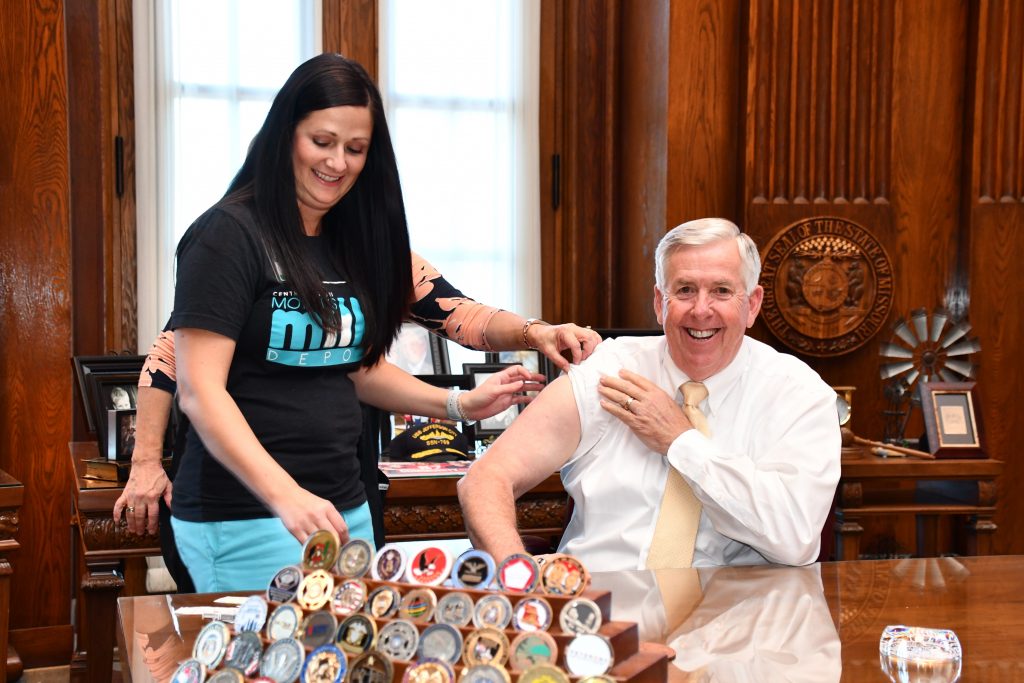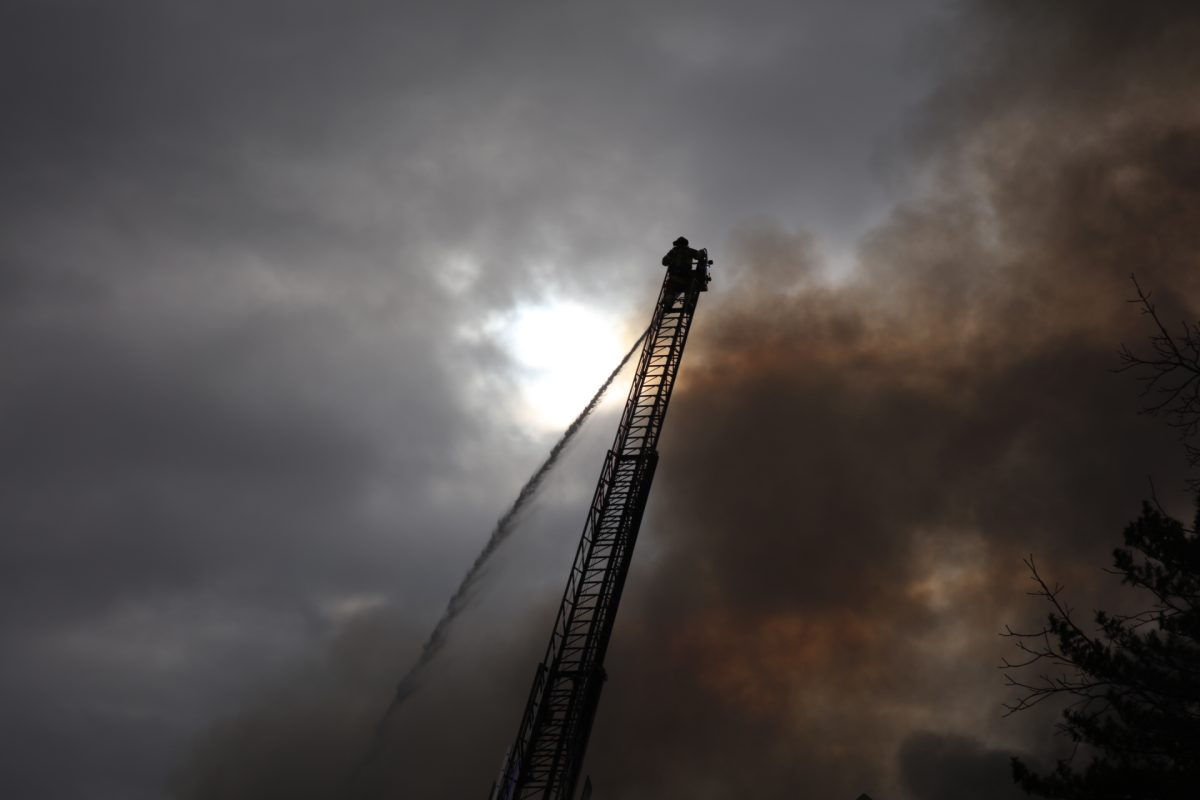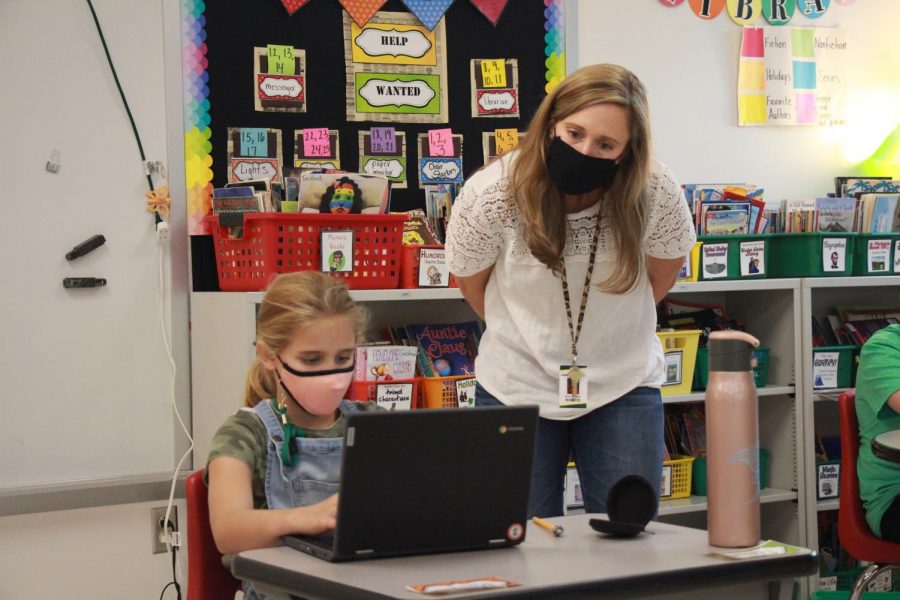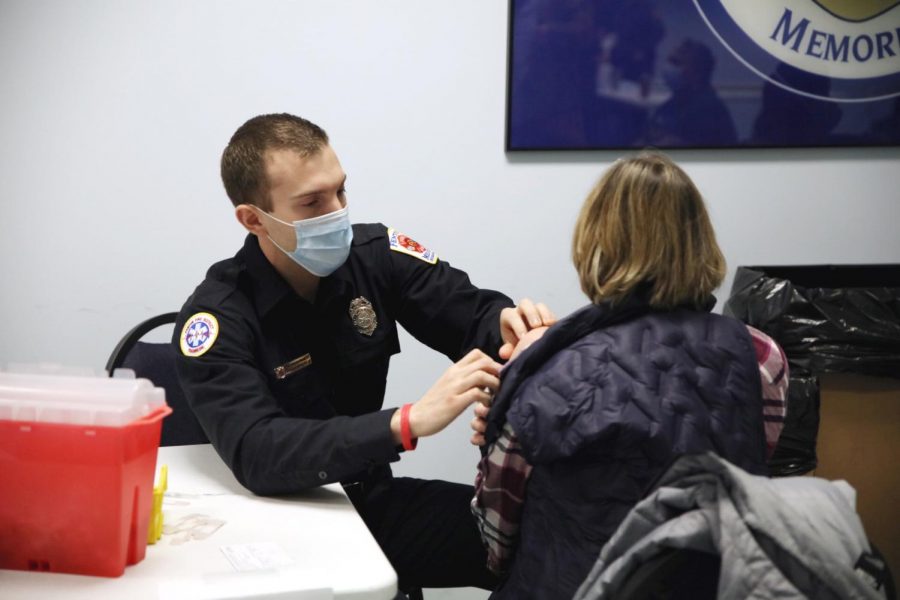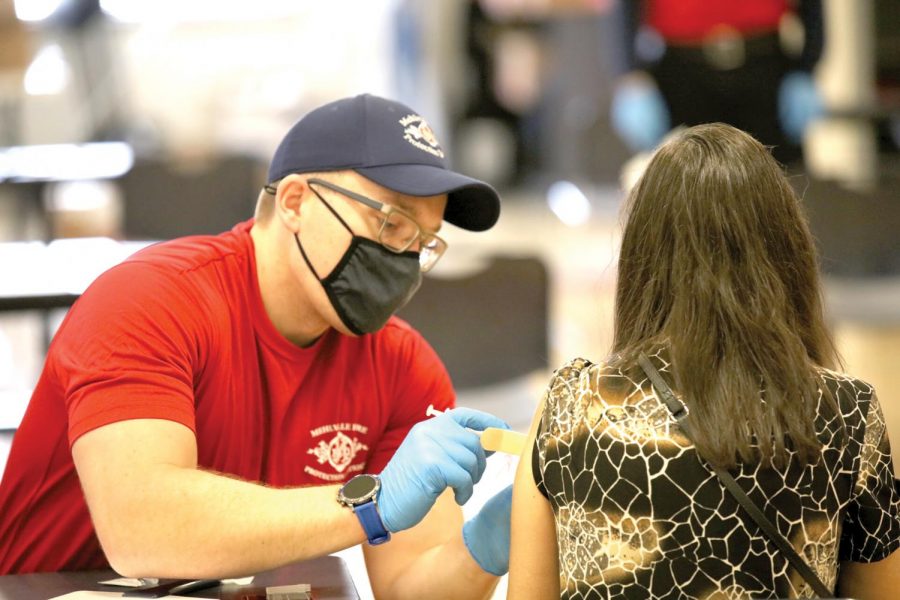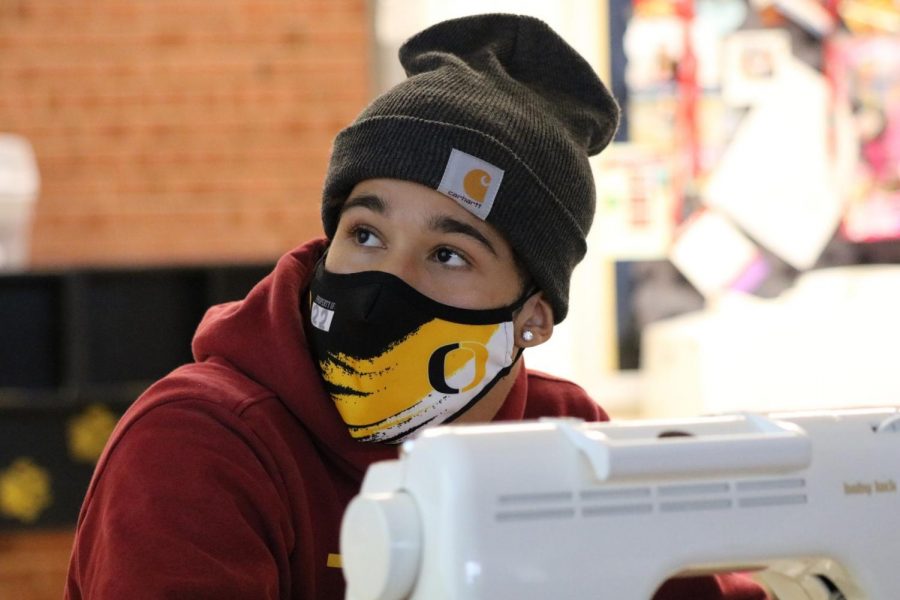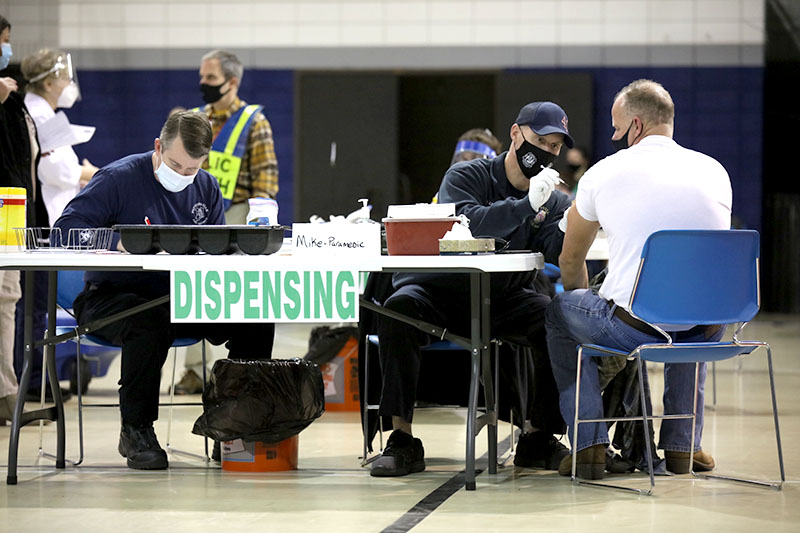Some major state office buildings reopened to the public Monday under the first phase of Gov. Mike Parson’s “Show me Strong Recovery” Plan, said Sarah Steelman, commissioner of the Missouri Office of Administration. Major state office buildings are defined as those with 300 or more staff.
The Missouri Department of Health and Senior Services reported 8,386 cases of COVID-19 in Missouri as of 2 p.m. Sunday, including 352 deaths. That compared to the 7,171 cases and 282 deaths reported at the time Parson made his April 27 announcement to reopen the state.
More than 2,000 state workers will return to work Monday, Steelman said at Parson’s Friday COVID-19 briefing. State government has operated at about 94 percent of its normal capacity during the pandemic. As of Friday, 14,930 state workers, about 40 percent of the state workforce, are working remotely.
Services that will be open within those buildings include motor vehicle and driver’s license services, motor vehicle inspection services and driver’s tests. Citizens are encouraged to continue conducting business with the state online, by phone or by mail.
Steelman also said that the Missouri National Guard will be screening employees and members of the public as they enter buildings, and that social distancing in reception areas will be enforced. Employees will be asked “symptom questions,” and if they answer yes, they will be asked to return home and to contact their physician. Members of the public who display symptoms will also not be allowed to enter the building.
Parson was also joined by Chris Chinn, director of the Missouri Department of Agriculture, who said every part of Missouri’s food supply has been “pressure-tested” since the beginning of the pandemic.
Chinn said that agriculture production, but not food choice, is often impacted by natural disasters. During the COVID-19 pandemic, Chinn said, consumers have seen “little impact” in grocery stores because of Missouri’s “sophisticated food system,” but that COVID-19 is causing market disruptions across the food supply chain. This includes “bottlenecks” with processing raw farm products.
“As food processing businesses slow down production or sometimes close due to COVID-19, there will inevitably be market disruptions, and those impacts are often first felt on the farm,” Chinn said.
Chinn also said that regarding Missouri’s meat processors, it is important for consumers to know the Department of Agriculture has been in constant contact with processors throughout the pandemic, and that the department has been helping them find face coverings and implement comprehensive testing.
Additionally, Chinn said the department has helped meat processors source personal protective equipment and that the cost of production for processors has gone up with the implementation of protective measures like putting in plexiglass and the purchase of screening equipment.



